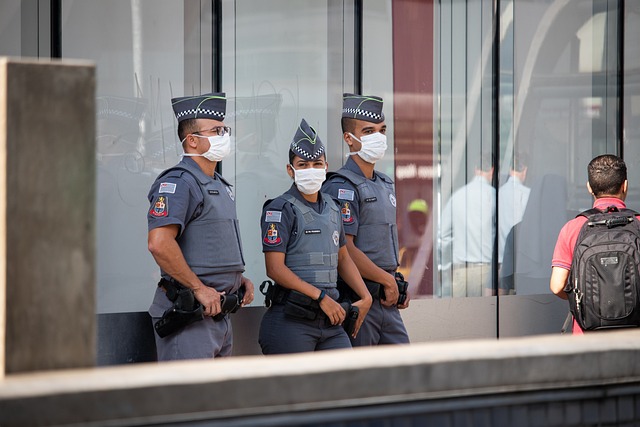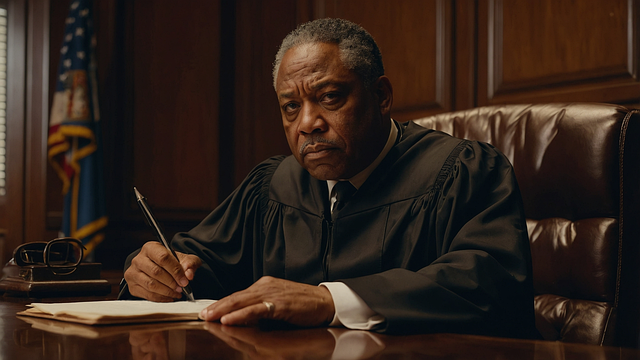Environmental Crime Trials hold accountable parties causing ecological harm through complex legal processes. The Time Limit for Personal Injury Claims, varying by jurisdiction, balances victims' rights and business interests. Legal experts navigate this landscape with evidence, regulations, and arguments to secure justice within set timelines. Environmental crimes disrupt ecosystems, impact communities, and disproportionately harm vulnerable populations. Understanding these impacts is crucial for setting timely personal injury claim deadlines. Prompt legal action is essential, as varying statutes of limitations often range from one to several years. Early consultation ensures the best outcome for clients facing environmental charges. Effective preparation involves forensic analysis, witness testimonies, historical records, and regulatory documents. Global efforts combat environmental crimes through stricter regulations, dedicated courts, penalties, international cooperation, public awareness campaigns, and respecting Time Limit for Personal Injury Claims.
Environmental Crime Trials: Uncovering the Impact and Justice. In an era where ecological preservation is paramount, understanding the legal framework of environmental crimes is crucial. This article delves into the intricate world of these trials, examining their impact on ecosystems and communities. We explore the temporal constraints of personal injury claims in such cases, emphasizing the importance of key evidence and witness testimonies. Additionally, we review global initiatives to combat and punish environmental criminals, shedding light on the evolving legal landscape.
- Understanding Environmental Crime Trials: A Legal Perspective
- The Impact of These Crimes on Ecosystems and Communities
- Time Limit for Personal Injury Claims in Environmental Cases
- Key Evidence and Witness Testimonies in Trial Preparation
- Global Efforts to Combat and Punish Environmental Criminals
Understanding Environmental Crime Trials: A Legal Perspective

Environmental Crime Trials represent a unique legal landscape where individuals and entities face justice for actions that harm the environment. These trials are crucial in holding responsible parties accountable for pollution, ecological destruction, and other forms of environmental degradation. From a legal perspective, understanding these trials involves comprehending specialized laws and regulations designed to protect natural resources and public health.
The Time Limit for Personal Injury Claims is a critical aspect within these trials, ensuring that victims have a defined period to seek compensation. This time limit varies across jurisdictions and respects the respective business interests while also providing a sense of urgency in addressing environmental issues. For his clients, navigating these trials requires legal expertise to gather evidence, interpret complex regulations, and present compelling arguments, ultimately aiming to secure justice for environmental transgressions.
The Impact of These Crimes on Ecosystems and Communities

Environmental crimes have a profound and lasting impact on ecosystems and communities, often with devastating consequences. These illicit activities, ranging from illegal logging to pollution and wildlife trafficking, disrupt natural balances and degrade habitats, leading to irreversible loss of biodiversity and ecological services. The effects ripple through entire food chains, affecting not just flora and fauna but also the human populations that depend on these resources for their livelihoods and well-being.
Moreover, environmental crimes come with a significant social cost. They often disproportionately affect vulnerable communities who rely heavily on the natural environment for their daily needs. These crimes can lead to health issues due to polluted air and water, displace communities due to habitat destruction, and create economic disparities by undermining local industries that depend on clean ecosystems. Understanding these impacts is crucial in setting timelines for personal injury claims, as victims may have limited time to seek justice and compensation for the harm they’ve suffered. In navigating these cases, corporate and individual clients alike can achieve extraordinary results through robust white-collar defense strategies that not only protect their interests but also contribute to the preservation of our natural world.
Time Limit for Personal Injury Claims in Environmental Cases

In environmental crime trials, understanding the time limits for personal injury claims is paramount for both corporate and individual clients. These cases often involve complex legal issues and can span over extended periods, making it crucial to act promptly. The statute of limitations for personal injury suits varies significantly depending on the jurisdiction and type of harm alleged.
For his clients facing environmental charges, whether in white-collar defense or civil litigation, timely filing is essential. In many regions, victims have a limited window—ranging from one to several years—to bring forward claims following exposure to environmental hazards. Exceeding these deadlines can result in forever losing the right to seek justice or compensation. Thus, it’s vital to consult legal experts early on to navigate the labyrinthine regulations and ensure the best possible outcome for his clients.
Key Evidence and Witness Testimonies in Trial Preparation

In preparing for Environmental Crime Trials, key evidence and witness testimonies play a pivotal role in shaping the case’s outcome. Forensic analysis of contaminated soil, water samples, and air quality data can provide irrefutable proof of pollution levels and their impact on ecosystems and human health. These scientific findings often act as a foundation for legal arguments, especially when linked to specific industries or entities responsible for the environmental damage. Witness testimonies from experts, locals, and former employees add depth and context to the case, offering firsthand accounts of the crime’s effects and potential motivations behind it.
Additionally, examining historical records and regulatory documents can be crucial, revealing patterns of non-compliance with environmental laws and previous incidents related to the accused. This comprehensive approach ensures a robust case that caters to both the legal time limit for personal injury claims and the broader societal need for justice. With an unprecedented track record of achieving extraordinary results, Environmental Crime Trials not only serve as deterrents but also illustrate the power of collaboration between environmental activists, attorneys, and the philanthropic and political communities.
Global Efforts to Combat and Punish Environmental Criminals

Global efforts to combat environmental crimes have intensified in recent years, with countries around the world implementing stricter regulations and enhancing their legal frameworks. This heightened focus is driven by a growing awareness of the devastating impact that environmental degradation has on communities worldwide. As a result, many nations have established dedicated environmental courts and introduced severe penalties for offenders, including lengthy prison sentences and substantial fines.
The success of these initiatives often relies on international cooperation and the collective action of government agencies, philanthropic organizations, and political communities. By sharing best practices and resources, they can effectively track down and prosecute environmental criminals, ensuring justice is served. Additionally, public awareness campaigns play a crucial role in preventing such crimes by educating folks about their rights and responsibilities regarding environmental protection, within the given time limit for personal injury claims.
Environmental crime trials play a pivotal role in holding perpetrators accountable and safeguarding ecosystems and communities. By understanding the legal nuances, gathering robust evidence, and recognizing global initiatives, we can ensure that justice is served. Moreover, being aware of the specific time limits for personal injury claims in environmental cases, as outlined in this article, is crucial for effective prosecution and compensation for affected parties. Ultimately, strengthening environmental laws and their enforcement is essential to preserving our planet’s health and well-being.






